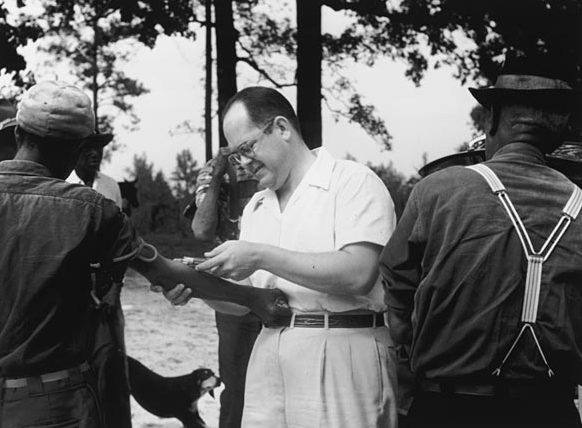What Went Wrong?

In 1932, the Public Health Service, working with the Tuskegee Institute, began a study to record the natural history of syphilis in hopes of justifying treatment programs for blacks. It was called the "Tuskegee Study of Untreated Syphilis in the Negro Male."
The study initially involved 600 black men – 399 with syphilis, 201 who did not have the disease. The study was conducted without the benefit of patients' informed consent. Researchers told the men they were being treated for "bad blood," a local term used to describe several ailments, including syphilis, anemia, and fatigue. In truth, they did not receive the proper treatment needed to cure their illness. In exchange for taking part in the study, the men received free medical exams, free meals, and burial insurance. Although originally projected to last 6 months, the study actually went on for 40 years.
In July 1972, an Associated Press story about the Tuskegee Study caused a public outcry that led the Assistant Secretary for Health and Scientific Affairs to appoint an Ad Hoc Advisory Panel to review the study. The panel had nine members from the fields of medicine, law, religion, labor, education, health administration, and public affairs.
The panel found that the men had agreed freely to be examined and treated. However, there was no evidence that researchers had informed them of the study or its real purpose. In fact, the men had been misled and had not been given all the facts required to provide informed consent.
The men were never given adequate treatment for their disease. Even when penicillin became the drug of choice for syphilis in 1947, researchers did not offer it to the subjects. The advisory panel found nothing to show that subjects were ever given the choice of quitting the study, even when this new, highly effective treatment became widely used.



